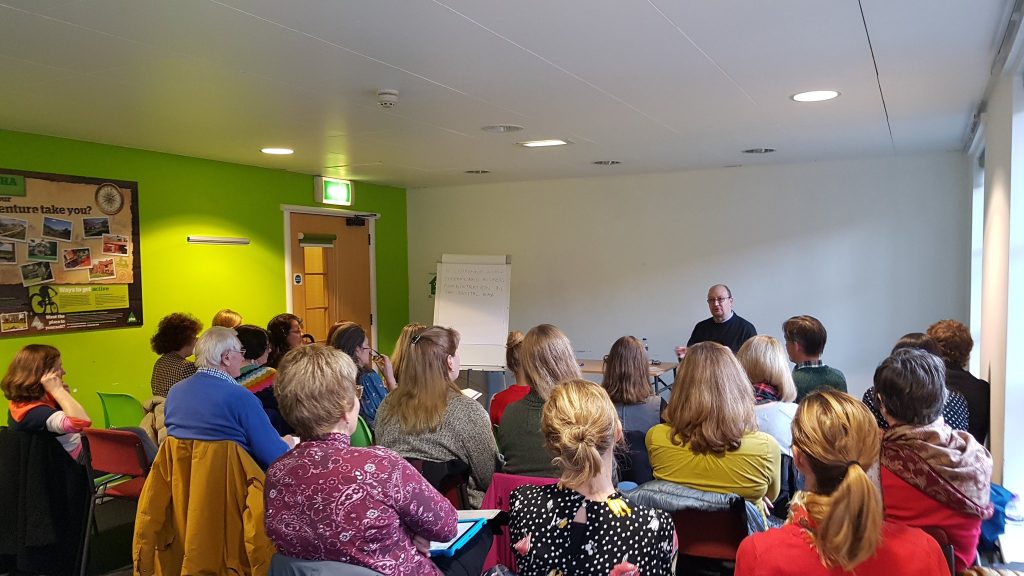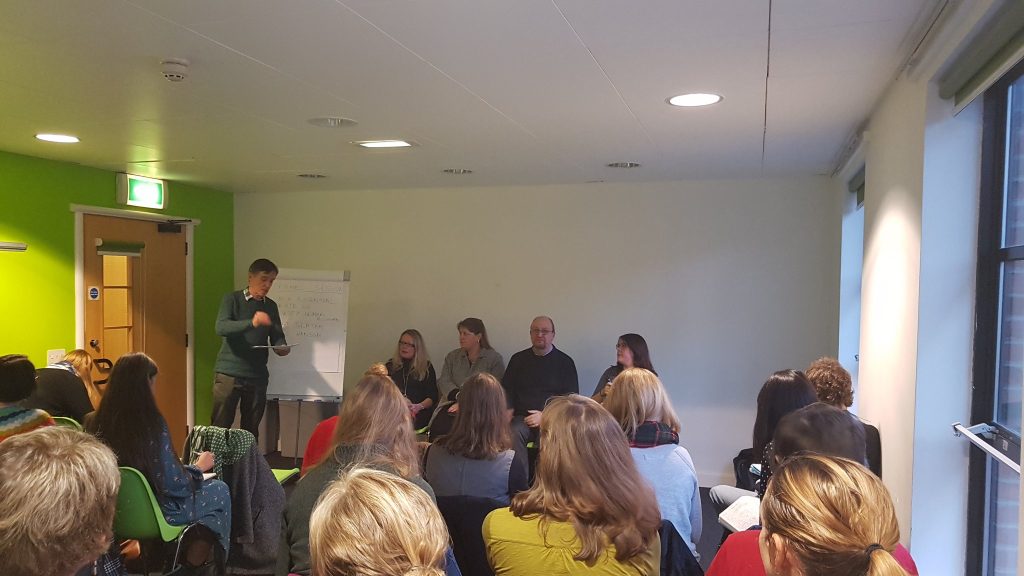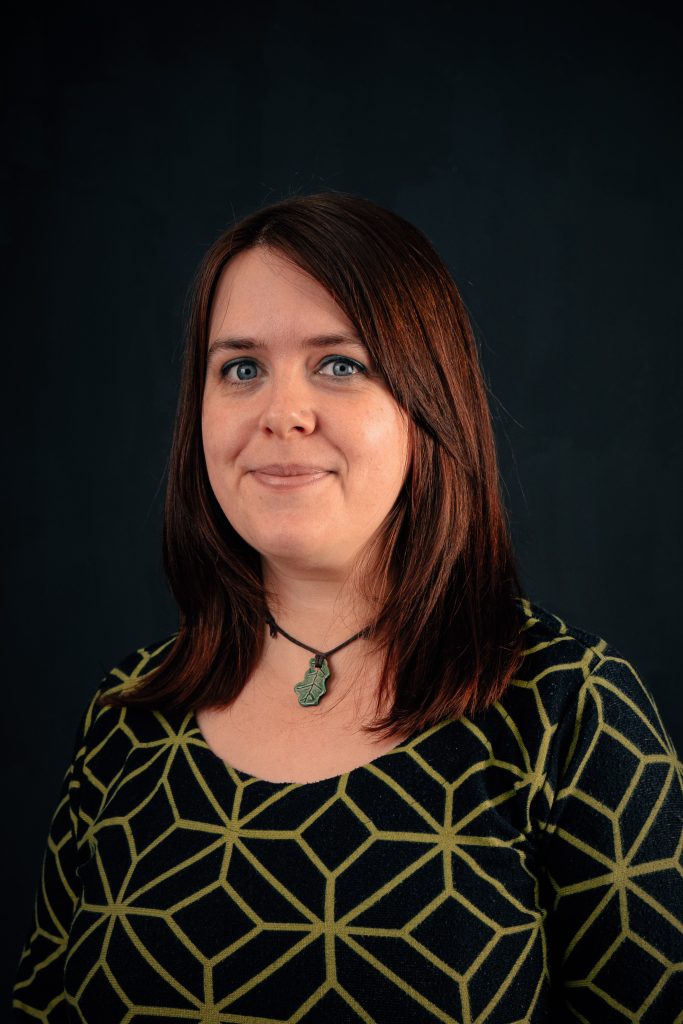
NWTN’s final Social Saturday of 2019 took a look at the digital business landscape and new financial products for self-employed translators. The event was led by Nick Rosenthal, a translator with 30 years’ experience and former ITI Chair and NWTN Committee Member.
Nick began with an overview of new fintech (financial technology) solutions for business banking, bookkeeping and accounting, as well as discussing recent regulatory developments such as HMRC’s “Making Tax Digital”. After a refreshment break, a panel of NWTN members gave attendees the chance to ask questions on self-employed business administration. The event covered a wide range of topics, ensuring that there was something for everyone running a business today.
I’d like to preface this event report with a disclaimer. This event was packed with information on complex business topics (tax, banking fees, regulations, etc.), and it would be impossible to reproduce everything here in the same detail. As with all financial products and regulations, you should carry out research yourself to keep yourself fully informed; the information below is just a snippet of the topics discussed at the event.

Challenger banks
Nick’s talk kicked off with a survey of the room on the topic of business banking: roughly half of the audience were freelance translators, and fewer than half of the room had a business bank account. Fees were one of the reasons cited as to why respondents hadn’t separated their personal and business accounts yet; it’s a particular issue if earnings are not stable enough in the early stages of self-employment to warrant paying fees.
New “challenger banks” offer a solution. Business accounts from digital app-based banks such as Monzo, Tide, Starling and Coconut have either minimal fees based on earnings or no fees at all. They also offer a range of other handy services such as invoicing, multi-currency accounts and tax tools. Some even have little to no extra fees on payments abroad – a real plus for translators and interpreters who travel frequently.
What these banks don’t have are high street branches but instead offer a 24-hour online chat service in the app so you can contact a customer service operator fairly quickly. These digital accounts also don’t come with cheque books. Although fewer people use cheques nowadays, it isn’t completely obsolete. It’s worth bearing this in mind if cheques still feature in how you run your business.
Importantly, not all new challenger banks are regulated and covered by the Financial Services Compensation Scheme. For example, Starling and Monzo are UK regulated banks while Tide and Coconut are e-money accounts partnered with Prepay Solutions, an electronic money institution authorised by the Financial Conduct Authority. It’s always worth looking into these smaller details to ensure that you’re confident that you know what you’re signing up for and that you’re comfortable with the set up.
Accounting and Making Tax Digital
As mentioned, these new digital accounts offer extra features to make both banking and bookkeeping simpler. For example, they are compatible with online accounting services such as Xero, FreeAgent, Sage and QuickBooks. This means you can set up your accounting software to automatically receive data from your bank account, saving you time on inputting your bank statements. You can streamline your admin even further with automatic expense categorisation and linking payments to invoices you’ve already created within these software – fiddling about in Word or Excel is no longer necessary!
Nick touched upon the HMRC’s “Make Tax Digital” campaign, an initiative to make everyone submit their tax information online. At present, only VAT returns have been “made digital”, but there are plans for self-employed tax returns to go the same way soon. These new rules require you to transfer data “live” from a digital accounting system, so shoeboxes of receipts aren’t going to be much help here! But fear not, there is a solution for those with piles of paper: many of these new digital accounting software allow you take a snap of your receipts with your phone and attach them to bank transactions or bookkeeping entries. This means everything is neatly to hand when the time comes to complete and submit your accounts online.
Despite some initial effort required to set up your accounting system, switching from low tech bookkeeping methods to online digital services will make your tax and financial affairs much simpler down the line. If you have an accountant who is familiar with these new software, you can give them a secure login to your system, allowing them to look at your accounts directly from their office – no need to mess around exporting and sending files.
Developments at HMRC mean that you won’t have the choice in future not to have a digital accounting system. The sooner you get to grips with these new technologies, the less stress you’ll have when all tax is made digital.

Panel discussion
After the opportunity for attendees to chat over coffee and biscuits, Nick was joined by other NWTN members for a panel discussion: freelance translator and NWTN Coworking Coordinator Kate Lo, conference interpreter and UCLAN Senior Lecturer in Interpreting Kirsty Heimerl-Moggan, and freelance translator and NWTN Social Media Coordinator Kat Slater. With all panel members at different stages of their careers and each with unique experiences of business admin, there were pertinent discussion points for everyone.
The panel not only talked about tax and banking, they also covered pensions, health insurance and income protection insurance. Translators/interpreters tend to put these latter topics on the back burner during the early stages of their self-employment, but they need to keep them in focus as their business grows, so it was great to hear from the seasoned professionals on these matters. Panel members and audience alike were able to share their experiences and recommendations of certain financial products, be it insurance, currency exchange services or new fintech services. Early career translators in the audience also benefited from asking the panel questions about their general experience of going freelance, something I’m sure everyone was itching to know when they were starting out!
Everyone who attended came away with something actionable to streamline their business admin. Personally, I appointed an accountant after attendees discussed the benefits of having one, and I know it wasn’t long before a fellow panel member signed up for a business bank account with Starling! Thank you to Nick, the other panel members and the attendees for making this a very productive and informative event.
Written by Kat Slater
NWTN Social Media Coordinator
German and French to English translator and proofreader![]()
![]()
![]()
